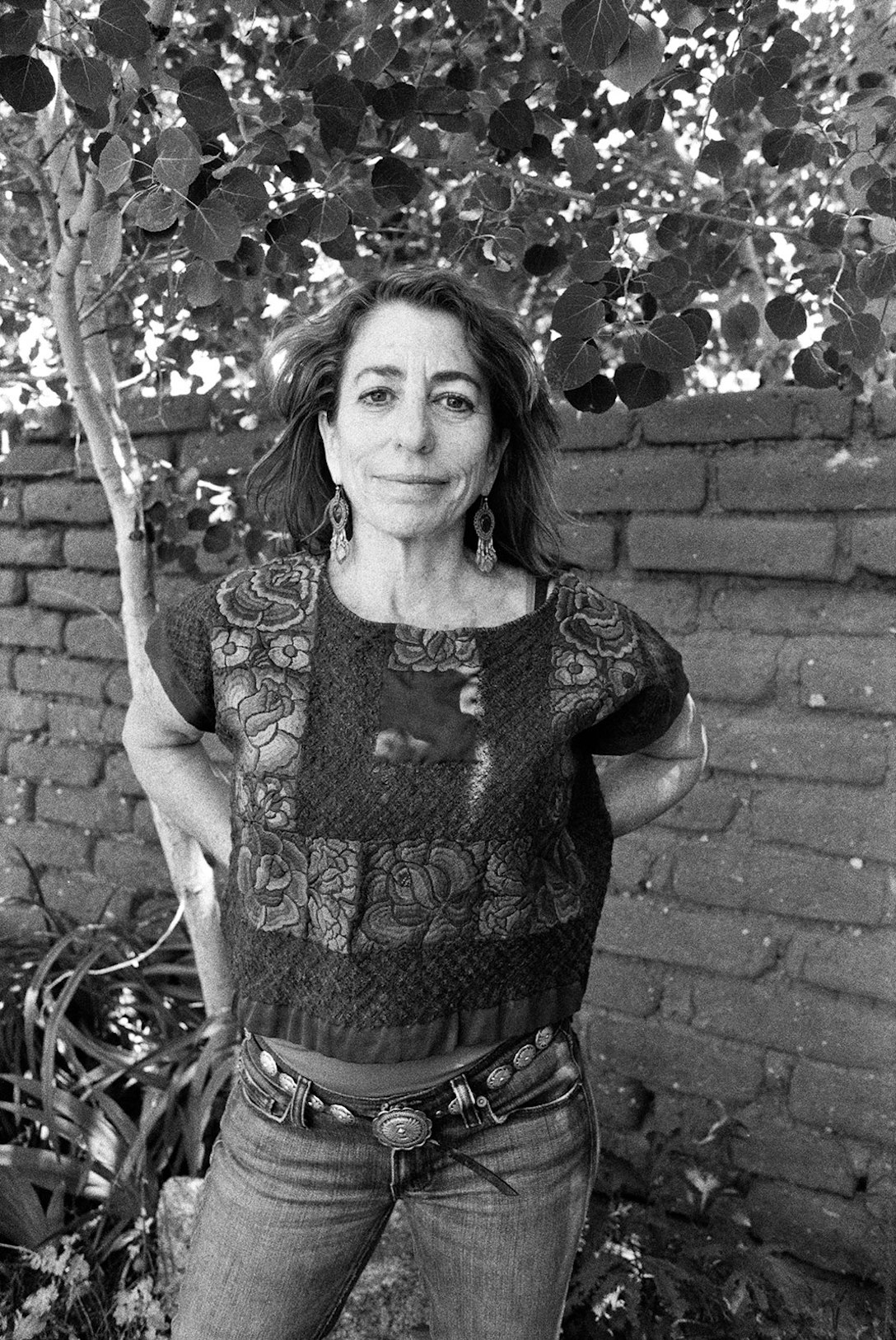
Mirabai Starr
Taos, New Mexico, USA
THE WILD MERCY OF THE DIVINE FEMININE
All my teachers were men. And most of them were white men. Meaning, they were the pinnacle of privilege in America and they were the carriers of these lineages that were distinctly boy-shaped. Their spiritual traditions organized established, dominant, patriarchal religious traditions that emphasized transcendence. This kind of vertical spirituality is all about transcending the body and the Earth; about blasting up and out of our relative experience of embodiment and seeing the Earth as an illusion to be awakened from.
And I bought into it because life in the body was hard. I had had all these losses. The two significant losses were my brother and my boyfriend. I was being sexually abused. I hated sex, I hated my body, I hated him but I couldn’t admit it because he was my spiritual teacher. And so this transcendent spirituality was right up my alley. Also, not only did this masculine, patriarchal sensibility emphasize transcending the body and the Earth, it was about perfection and purification. And so that of course increased my self-hatred exponentially because this body of mine was not right. If I just could beat the shit out of it and beat it into submission then maybe I could get to God. And all of these practices of purification and perfection—this whole self improvement project—is designed for failure. It’s designed to disparage who we are and what we have. It’s taken me decades to recover from that kind of conditioning...that somehow I was impure and imperfect, and if I just worked hard enough, I could get right with God. To actually reclaim and embrace my body as holy ground and this Earth as sacred. To see that it’s not only about me. It’s about all of us and it’s about the Earth herself. And this predicament of climate catastrophe. The way that women and girls have been disparaged and buried, and women’s wisdom has been basically erased from the religious canon across the landscape of the spiritual traditions, is intimately entwined with this disparagement of the body in this emphasis on transcendence and purification of perfection. The Earth herself, our beloved mother, our lover, the Earth herself has been the most tragic victim of that way of seeing and being.
[The feminine] is about recognizing our interdependence, rather than our individual heroic personality traits or sets of skills. So the feminine is about recognizing the way in which everything is interconnected. We are all interconnected and we all have something to bring to the table; nobody is more special than anybody else. Emphasizing those qualities of interconnectedness and relationship and mutual affirmation is a task that we all have, and we’re all called in some prophetic, powerful way to embody right now. There is wisdom in feelings and emotions, in relationships, in the body itself. The masculine paradigm has denied this for millennia. Embodied, relational, feeling-centered wisdom is what’s needed to save us from the brink of extinction. And therefore yes: men, women, and people of all genders can emphasize and center those values in everything that we do.
I’m really moved by the ways in which many men, privileged white men, are voluntarily abdicating their own power in order to emphasize these feminine realities. They are stepping back and allowing these feminine voices to be centered and to be prominent. Many men are hungry for this feminine wisdom. They are so willing to step back and allow that to emerge. Every once in a while, I’ve been interviewed by women who are just recapitulating the patriarchy, who are being just as bossy and controlling and ego-centered as some men that they purport to be replacing. So it’s not just about women doing what the dudes have done. It’s about all of us reclaiming our interconnectedness and the power of lovingkindness. And not just those soft kinds of traditionally feminine qualities of compassion and lovingkindness and mercy and unconditional forgiveness and all of those things that definitely belong to the feminine, but also the ferocity, the wildness, the overflowing creativity that can look like chaos. The rule-breaking, the subversive elements of the feminine that disrupt those structures that are so entrenched and so rule-bound and legislative. The feminine turns it all upside down. Breaks it all open. It’s messy. It’s not always pretty. That aspect of the feminine also is what is needed right now.
Daniel’s Reflection
I met Mirabai Starr in her home in Taos, New Mexico after being told of her and her important work on the Divine Feminine only two days earlier. How gracious and warm, and beautiful of a soul she is, and I felt instantly welcomed as she invited me into a great soul conversation. Mirabai “had me at hello” when she described herself as “a Jewish Sufi with a Hindu guru and a Buddhist meditation practice and a pagan inclination who is a contemporary translator and commentator on the Christian mystics.”
Mirabai told me, “I don’t have faith and I’ve never had faith. I have always felt an intimacy with the Divine, however.” It was her own experiences with death (one of her brothers when she was a child, her boyfriend in high school), and her experience being sexually manipulated by a spiritual teacher in her teens that led her to a profound healing and spiritual connection.
Mirabai is most known for her translation of Christian mystics from Spanish to English (such as Teresa of Avila and John of the Cross). She just published an amazing new book titled, Wild Mercy: Living the Fierce and Tender Wisdom of the Women Mystics, that uncovers the power of the Divine Feminine and female mystics across religions and cultures. I learned many things from her book and our time together in Taos:
Religion and the idea of a “vertical” spiritual journey of seeking to transcend the body is an artifact of white males who shaped religion in western society.
Perfectionism and self-hatred is the by- product produced by this idea of needing to transcend the body and this world.
Embracing the Feminine does not mean the female.
Males, females, and other gender people can all embody the feminine traits that our world so desperately needs now: interdependence, mutual affirmation, relationship, wild creativity, and wisdom of the body.
White men, and men in general, can take active steps in helping the feminine become more of a driving force in our society, particularly embracing the feminine characteristics and stepping aside for women to lead where necessary or possible.
We need to be careful that we are not just bringing women on board to lead in male ways which emphasize hierarchy, winning, consuming, authority, etc.
It is so powerful to realize that the very metaphor of needing to transcend the body and the here and now is a masculine construct. It gives me permission to realize many things I used to hold sacred might, in fact, be Old World constructs that neglected to integrate feminine wisdom. It makes me ask, “What am I willing to do to bring in more feminine energy into the world, including allowing more women to lead in ways that honor the feminine energy?” I am asking myself where I have been stuck in the male paradigm. For example, for many years I was unnecessarily over-competitive at work, fearful of protecting “my space.”
After meeting Mirabai, I ask new questions: “Where can I emphasize relationship over winning and consuming?” and “How can I honor my overweight body and its wisdom while I work to become healthier versus shaming myself?” and “Would I be willing to step aside to allow a woman to be a more visible leader where I would have otherwise been leading?” “Would I have given up being a Harley Procter Marketing Director at P&G, or the instructor of a class at Rotman MBA, to enable greater representation by women?” Those were important accomplishments for me, but I recognize that I need to be willing to step aside to let women take a greater lead. My contribution is that I hope to have shown others in the corporate environment that a spiritual and relational approach to leadership is valuable and impactful.
I am further provoked by Mirabai’s reminder that the Divine Feminine is not just more cooperative and loving but it is radical and transformative “...the ferocity, the wildness, the overflowing creativity that can look like chaos. And the rule- breaking, the subversive elements of the feminine that disrupt those structures that are so entrenched and so rule-bound and legislative.” So, embracing the Divine Feminine means to be willing to unearth and take down male-dominated structures, their ways of being and thinking, even when doing so results in the chaos that must happen before positive change.
Thank you, Mirabai Starr, for a beautiful journey that you shared with vulnerability and insight. Being with her that afternoon in Taos changed me and my understanding of the Divine Feminine and its power to change humanity.
Permissions and References
-
Starr, Mirabai. 2019. Wild Mercy: Living the Fierce and Tender Wisdom of the Women Mystics. Sounds True.
Explore the portraits by theme
- happiness
- grief
- addiction
- sexuality
- sobriety
- transgender
- alcoholism
- suicide
- homelessness
- death
- aggression
- cancer
- health
- discipline
- abortion
- homosexuality
- recovery
- connection
- enlightenment
- indigenous
- depression
- meditation
- therapy
- anger
- forgiveness
- Doubt
- interfaith
- worship
- salvation
- healing
- luminaries

